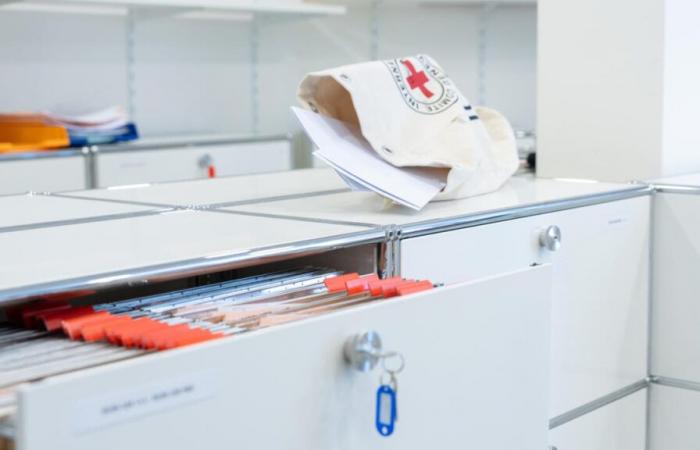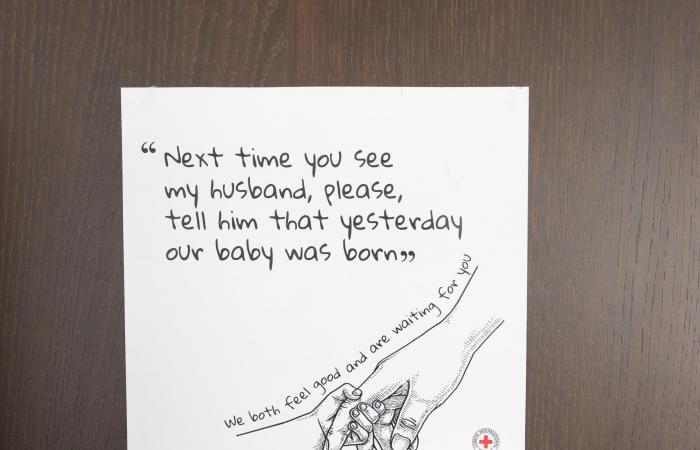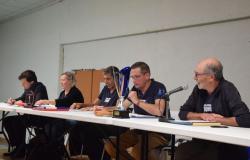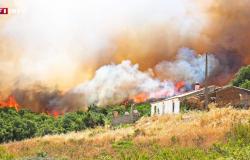Searching for the missing, maintaining family ties… These traditional missions of the International Committee of the Red Cross (ICRC), the heart of its mandate stemming from the Geneva Conventions, have since the launch of its operations in March 2022 on the conflict in Ukraine. unprecedented scale for the organization. The ICRC opened the doors of its Moscow headquarters to a media outlet for the first time.
From our correspondent in Moscow,
Near three train stations, the ICRC headquarters in Moscow now sees entire families arriving after spending the night on a train. Sometimes as early as 7 a.m., they wait for the organization’s premises to open. These families travel to the Russian capital in search of information about their missing loved ones.
However, most of the work of ICRC employees takes place within walls where a thick, concentrated silence reigns, barely disturbed, regularly, by calls. At the end of the line, headphones on their heads behind their computer, two operators are dedicated to work in the first instance, including Marina, 24 years old, (her first name, like that of other employees responding to calls, was changed at her request). She explains:
« All first calls go through me and my colleague. We receive between 50 and sometimes up to 130 calls each day. The duration depends on the type of question a person has. Sometimes you can solve a question in a minute, and sometimes you have to spend 15 minutes on it. We get all kinds of calls. Most of the time, they are very polite and respectful people in their communication. Of course, they are very often in a very difficult psychological state because they have already been to many places, because they have not been able to get answers to their questions for a very long time, and because they still do not know not where their loved one is. »
Sometimes, families have doubts about who could have contacted them, Marina also explains: “ There are families who receive calls from scammers and they are very worried because they are told, for example, that their loved one is in captivity and in danger, and the family is asked to urgently send money to someone. »
Whatever the situation mentioned, these calls carry their share of emotions. “ Mainly frustration, because people don’t know anything, explains Marina. They are therefore very tired, extremely traumatized. There are times when they get very angry, and that’s normal. We understand why this happens. »
At the ICRC, staff support the families of the missing in many ways
With the agreement of the families and the guarantee of total confidentiality, Marina and her colleague then establish all the first concrete elements to establish a research request: photos, tattoos… It is other colleagues, then, who take over , and keep the link.
« There are several possibilities, Elena explains. The first is when we receive information in our system that a person is confirmed as a prisoner of war by the Ukrainian authorities: in this case, we call the contact telephone number that the applicant left us, and inform them that his relative is a prisoner of war.
The second option is when we receive short verbal messages or Red Cross messages from a prisoner of war for his relatives: in this case, the prisoner of war leaves the contact details of the relatives to whom he wishes to send a short message. Of course, reactions vary, from tears to screams of joy over the phone. »
Announcing good news, for example that traces of a captured soldier have been found, remains rare, but in these cases, the feeling of being useful is particularly strong. There are also the words of the families. Maria remembers, with discreet emotion: “ I was once sent a screenshot of a group called “Parents of People Missing During the Conflict,” which exchange information on social media. Someone advised contacting the International Red Cross, saying that they explained things well there. At times like this, we feel proud of what we do in the organization. »
The fact remains that very often, as conflict sets in, says Maria, problems accumulate. “ Some live in the Belgorod region, on the border, so they are also in a conflict zone. So, in addition to the fact that they have lost track of their loved ones, which is already a tragedy, they have many other problems and they often feel alone, abandoned. When we haven’t called in a while, families contact us using our email or toll-free hotline number to see if there’s any news or not because they are worriedexplains Maria. In such a case, of course, we respond quickly, and clarify all necessary information. Unfortunately, due to the large number of files we have, it is not always possible to be in contact with everyone. But we understand that our main task is to provide all kinds of support, including psychological support. Sometimes it is important for a person to just be able to talk. »
In the midst of conflict, the ICRC’s task is titanic, especially since the length of the front line and the violence of the fighting are also major obstacles to recovering the wounded, bringing back the dead and carrying out identifications.
Since the start of the conflict, 36,000 research files have been opened
The latest figures from the organization, after more than two and a half years of conflict, are dizzying. For obvious reasons of confidentiality and neutrality – this is also in its mandate – the organization gives global figures for actions carried out, and not country by country. At the end of September 2024, the ICRC had counted around 230,000 calls, emails or visits from families looking for missing people, and physically met 10,000 families.
There are 36,000 open search files for the missing. “ The typical case is the families of soldiers and civilians who have lost contact with their loved ones, says Pamela Ongoma, head of protection of family ties at the ICRC regional delegation in Moscow. Sometimes we also have cases of families who know from other soldiers that their loved one was taken prisoner. They contact us to open a research request, so that we can include it in our databases, because they know that our activities are scattered, and that this can allow them to receive news. »
This is a provision of international humanitarian law: the relatives of the disappeared have the “ right to know “. To carry out this task, the ICRC’s system is the most massive since the Second World War: 50 Red Cross and Red Crescent societies are involved, as well as 27 delegations from the international committee. Requests can in fact be submitted by families who have taken refuge far from the conflict.
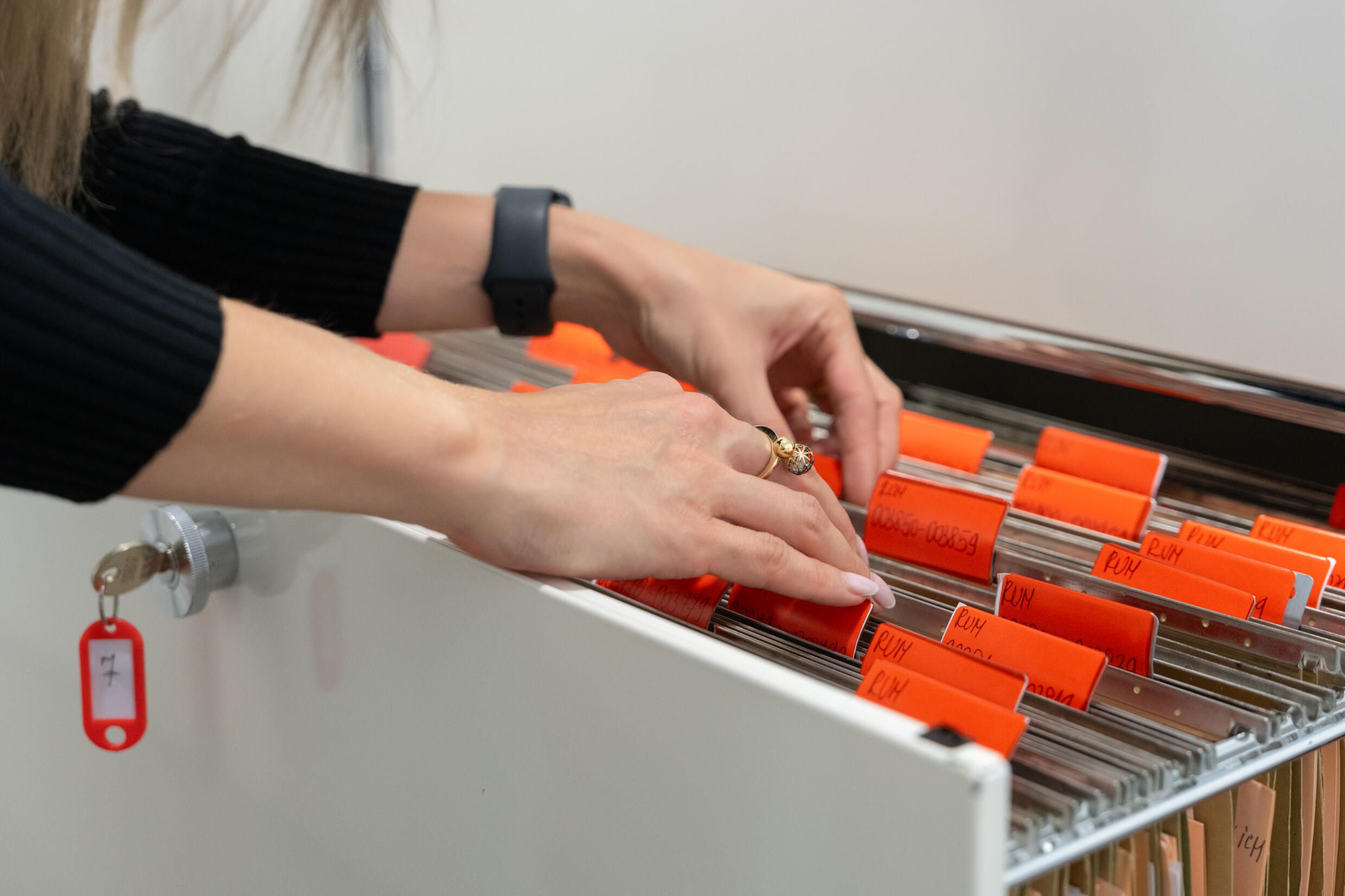
At the heart of this machine, a structure was specially created: the “office of the Central Research Agency for the international armed conflict between the Russian Federation and Ukraine”. It is based in Geneva, with branches in kyiv and Moscow. The scale and duration of the conflict require more and more personnel, explains Pamela Ongoma: “ In 2022, the team responsible for monitoring families was still small. It gradually increased. We have done a lot of recruitment and have now multiplied the workforce by four compared to the beginning ; Today there are 38 of us dedicated to the protection of family ties. And we also have other departments, which are, for example, responsible for delivering messages from families. I think that given the workload, we will continue to recruit. »
According to the Geneva Conventions, prisoner exchanges are not an obligation of the parties. In this conflict, they are negotiated without the ICRC, directly between kyiv and Moscow. Out of sight.

